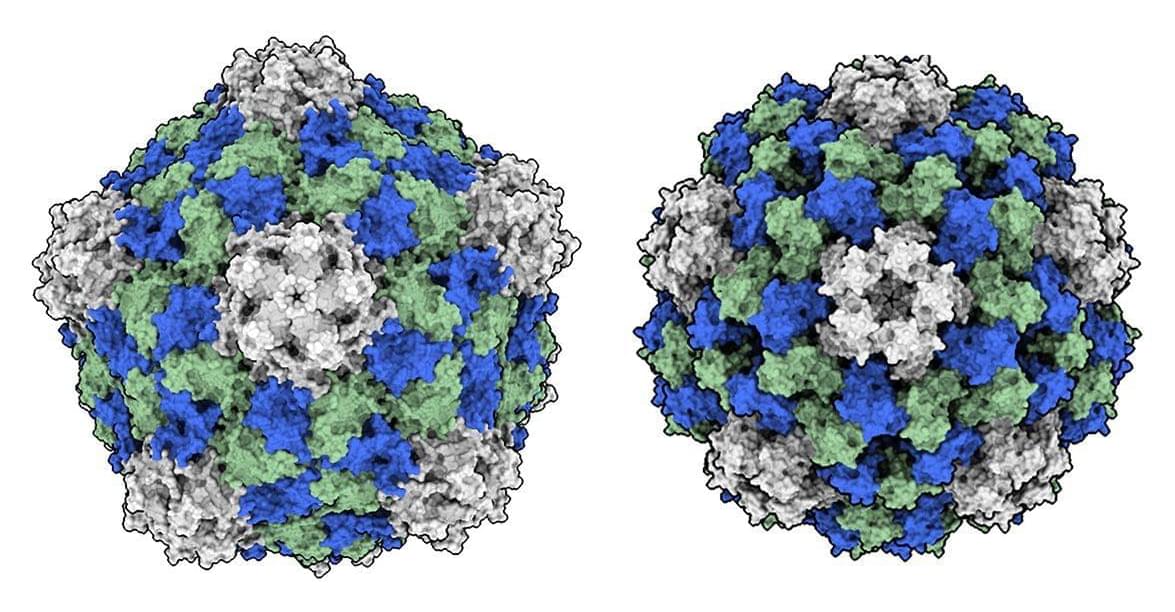A virus that typically infects black-eyed peas is showing great promise as a low-cost, potent cancer immunotherapy—and researchers are uncovering why.
In a study published in Cell Biomaterials, a team led by chemical and nano engineers at the University of California San Diego took a closer look at how the cowpea mosaic virus (CPMV), unlike other plant viruses, is uniquely effective at activating the body’s immune system to recognize and attack cancer cells.
In preclinical studies, CPMV has demonstrated potent anti-tumor effects in multiple mouse models, as well as in canine cancer patients. When injected directly into tumors, CPMV therapy recruits innate immune cells—such as neutrophils, macrophages and natural killer cells—into the tumor microenvironment to destroy cancer cells. Meanwhile, it activates B cells and T cells to establish systemic, long-lasting anti-tumor memory. This immune reawakening not only helps clear the targeted tumor but also primes the immune system to hunt down metastatic tumors elsewhere in the body.
